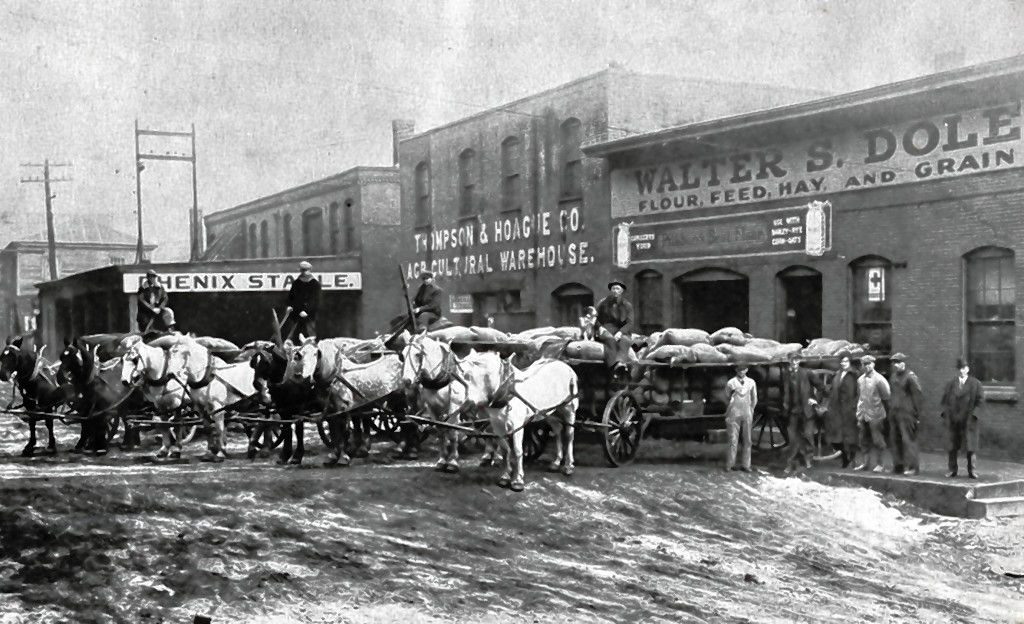March 12, 2000: Bishop Guertin defeats Concord, 3-2, in the Division I hockey championship game, ending the Crimson Tide’s run of four consecutive state titles.
March 13, 1782: The Legislature meets in Concord for the first time. The site is “the Old North,” the First Congregational Church. The building will burn in 1870. It was on the site of the current Walker School.
March 13, 1852: For the third time in three years, local voters reject a plan to turn Concord from a town to a city. The vote is 458 in favor and 614 against.
March 13, 1993: People hunker down for what television has hyped as the “storm of the century.” Concord gets 17 inches of snow. Most roads will be clear by morning.
March 14, 1939: The Monitor reports that the task of renaming city streets has been turned over to the city planning board by an aldermanic committee which has had the job for nine months and renamed just one street.
March 14, 1947: The Monitor editorializes in favor of the construction of a city swimming pool – and a plan to charge swimmers a fee: “It is no more unreasonable to expect swimmers to pay something for this privilege than it is to expect golfers at Beaver Meadow or tennis players at Memorial Field to pay enough to cover the costs of their sport.”
March 14, 1948: For the second day in a row, the low temperature in Concord is 11 below zero. The normal March low for the 20th century is 22 above.
March 14, 1996: In Concord three weeks after the presidential primary, Sen. Bob Kerrey of Nebraska says if he is to run for president in 2000, he will have to find a burning desire within him. He learned from his unsuccessful 1992 run, he says, that being angry with George Bush was an inadequate reason. Ultimately, Kerrey will bow out.
March 14, 2001: Top-seeded Nashua survives a scare from No. 4 Concord in the semifinals of the Class L girls’ basketball tournament. The Purple Panthers win, 44-41.
March 15, 1855: After the anti-Catholic, anti-immigrant Know-Nothing movement makes major gains in the annual elections, Concord editor George G. Fogg exults over the ousting of entrenched political powers. He writes: “Cowering and quivering before the indignation they have aroused, the panders of Slavery, Intemperance, Catholicism and every manner of evil lie stunned and prostrate at the people’s feet.”
March 15, 1914: The Right Rev. William Woodruff Niles dies in Concord at the age of 81. He had served as New Hampshire’s Episcopal archbishop for more than 40 years.
March 15, 1999: The Monitor reports that Vishay Sprague, one of Concord’s leading manufacturing employers, plans to close its plant on the Heights and move its remaining 2000 jobs to Maine.
March 15, 2001: Led by Democratic Gov. Jeanne Shaheen, more than 250 people stage a midday rally at the State House to protest the budget introduced by Republican House Finance Committee Chairman Neal Kurk. GOP leaders, in turn, accuse Shaheen of disingenuous gamesmanship, saying she’s trying to scare people into supporting her school funding plan.
March 15, 2002: Nearly 50 years after the concept of a Northwest Bypass emerged, the city of Concord has received a wetlands permit needed to build a portion of the road, the Monitor reports.
March 16, 2003: Gov. Craig Benson’s proposed budget would reduce the prison staff looking after state inmates and shrink funding for education and rehabilitation, despite a growing number of residents behind bars, the Monitor reports. It could also increase crowding at the Concord prison.
March 17, 2000: The attorney general announces a breakthrough in the 1981 murder of Concord resident Yvonne Fine. Joseph Whittey, who’s been in prison on an unrelated attempted murder conviction since 1990, is now charged with first-degree murder in the death of the 81-year-old woman.
March 18, 1852: George G. Fogg, Concord editor, Free Soil leader and temperance man, puts the best face on his party’s election loss to the Democrats. “The men who have carried this state by rum this year must take the responsibility for it next year,” he writes. “The wedge they have so successfully used to divide and conquer their opponents will, ere long, be found severing the joints and marrow of their organization.”
March 18, 2001: The college basketball season for Concord’s Matt Bonner and his Florida teammates comes to an abrupt end when the Gators, a No. 3 seed, are routed by No. 11 Temple in the second round of the NCAA tournament. Bonner, a sophomore, scores 13 points and grabs 11 rebounds in the loss.









